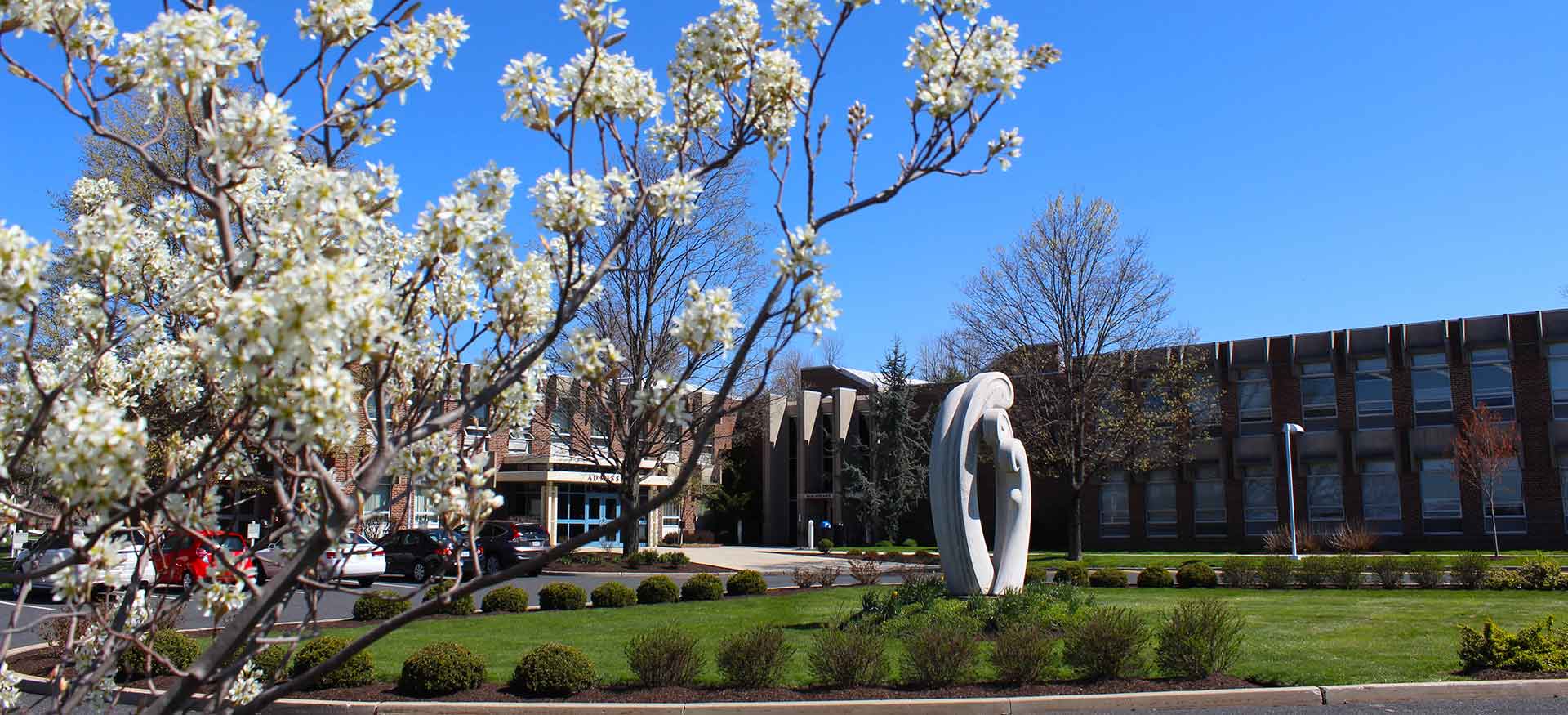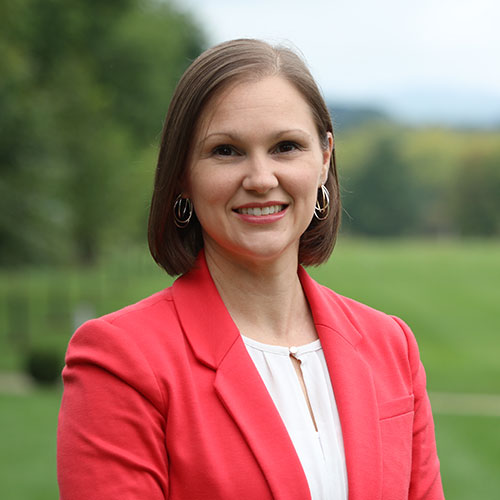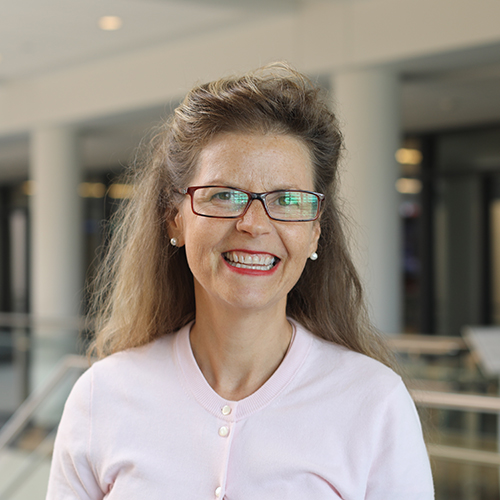Decades of Experience Helped DeSales Transition to All-Online Learning

Ready for anything. That’s the motto that the Center for Educational Resources and Technology (CERT) has adopted amid the Coronavirus pandemic.
When colleges across the country quickly transitioned to an all-online learning platform, the spring semester could have screeched to a grinding halt. Luckily at DeSales, the CERT team had experience on its side and a good base to build from.
“We had the basic structure in place and we weren’t starting from nothing. That was definitely a big leg up for DeSales compared to some of our peers.”
Since the majority of faculty members have already taught online, Hagan’s first priority was to find any gaps and to bridge them quickly. CERT hosted several training sessions each day before campus closed—all aimed at teaching faculty the basics of Blackboard, the University’s learning management system, and Zoom, the video conferencing system.
For some departments, the transition was seamless. But others—like the dance department—had to make fundamental changes to their curriculum. Instead of focusing on physical demonstration, it’s had to shift to the theoretical side of dance techniques.
“We’ve been relying on CERT a lot,” says Julia Mayo, assistant professor of dance. “They’ve been really great about helping us get content up and walking us through some of the ways that we can utilize Blackboard.”
The dance department also has been holding faculty meetings to share tips and different ways to use the virtual platforms. While the online instruction has been working, for Mayo and the rest of the dance faculty, it’s the student interaction and the ability to give hands-on correction that they miss the most.
“I want to be able to come up behind them and touch their shoulders to help remind them to release some tension that they’re holding in their upper back, and I can’t do that,” Mayo says. “It’s challenged me to use words in a new way to try and find descriptive language so I can create a picture of how the students need to sense the movement in their bodies.”
Online learning may have its limitations, but it’s certainly come a long way over the past two decades. Just ask Sue McGorry. She taught the very first MBA online class back in 1996—the same year she arrived at what was then Allentown College.
“We knew that online education was another way for us to be unique, another way that we could capture market share,” says McGorry, assistant provost for curriculum, assessment, and student success. “If you had innovative ideas, you were encouraged to run with them.”
Nearly 30 students signed up for that first online marketing management course. Breaking the mold was certainly challenging back then, considering faculty members—not publishers—had to create all the content themselves.
McGorry also describes those early classes as little more than glorified chat sessions, which would frequently drop out when the servers couldn’t support the students and the technology all at the same time.
“Sometimes you couldn’t get back into a class, and you had to find other ways to communicate the content to students,” she says. “The on-ramp was significant when you began teaching a new course. It forced you to be innovative.”
Despite those early growing pains, the first online class was such a hit that DeSales quickly expanded its offerings into other areas, including the ACCESS program, which today boasts a nearly 70 percent online enrollment. McGorry believes the University excelled in online education early on because of the faculty’s willingness to experiment and the support they received from the top down.
“We were able to very quickly move into that space, explore a lot of different technology, and apply it better and faster than our competitors. We’re also really blessed to have an amazing faculty. They have our students’ best interest at heart—that’s key to making any learning successful.”
Today, the MBA program remains a leader in online education, ranking in the top 150 on U.S. News & World Report’s 2020 list of Best Online MBA Programs. DeSales’ Master of Arts in Criminal Justice (MCJ) program also ranked 52nd on the 2020 list of Best Online Master’s in Criminal Justice Programs.
Moving forward, it’s still unclear how the fall semester will unfold. Having years of experience and the spring semester to build from, Hagan and his team will be ready for anything—whether students are back on campus or classes are held online again. Either way, he says it will require the same team effort that’s made the spring semester so successful.
“Everybody had a can-do attitude that we were going to make this happen and that the University was going to continue to provide a quality education,” he says. “It started from the tone that was set by Father Jim Greenfield and Brother Dan Wisniewski that we were going to find a way to do this and make it happen.”






